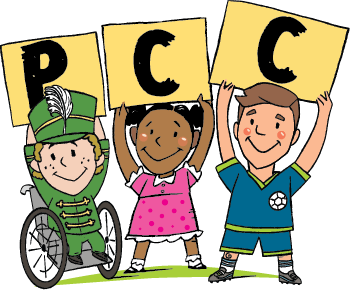Home » Common Childhood Illness FAQs » Sore Throat
What You Should Know
Sore Throat or Strep Throat?

It can be hard to tell if your child simply has a sore throat or something more serious, like strep throat. If your child complains of a sore throat, it’s important to consider if there are other symptoms. Sometimes you can pinpoint the cause like allergies or a cold accompanied by congestion or a runny nose that might be causing drainage in the throat.
Read the questions and answers below to learn how to tell the difference between a sore throat and strep throat, how to treat a sore throat, and how to know when you should bring your child in to see a pediatrician.
The only way to truly tell is by having a strep test done at your doctor’s office.
A sore throat (pharyngitis) can be caused by allergens like pollen, dust or certain food allergies but is also commonly caused by the flu and viral infections.
A sore throat from a virus has no immediate cure beyond treating the symptoms, like if they have a fever. It needs to run its course. A simple cough due to throat irritation such as dust or a minor allergy is more “dry” sounding similar to when your own throat has a tickle in it.
Common symptoms of a sore throat include:
- Swollen throat/swollen tonsils
- Scratchy throat
- Swollen glands/lymph nodes
- Moderate fever
- Earache
- Moderate rash
- Runny nose
- Cough
- Common cold
- Congestion
- Difficulty breathing
A sore throat has no immediate cure beyond treating the symptoms, like if they have a fever. It needs to run its course. There are still a few actions you can take to help make your child more comfortable while they are dealing with a sore throat.
To help ease the discomfort, you can have your child:
- Gargle with warm salt water (A 1:5 ratio is recommended of salt to water. Be careful that your child can gargle and does not swallow the salt water.)
- Drink warm liquids like broth soup
- Eat Popsicles – the cold can help numb the sore throat
- Take over-the-counter medication like children’s acetaminophen
- Try a throat spray. (Double- check the label to ensure your child is old enough to take it. Most medications should be recommended by your pediatrician if your child is under the age of 2.)
- Use a humidifier. Keeping the throat moist can greatly reduce discomfort of a sore throat, so investing in a humidifier to keep the air from becoming dry is wise. However, you must be diligent with keeping your humidifier clean.
Strep throat (Streptococcal Pharyngitis) is much more persistent than a sore throat, and the pain during swallowing is much more accentuated and is caused by strep bacteria. Children will also not handle strep throat very well and will complain of a lot of discomfort while swallowing.
Use a flashlight to check the back of your child’s throat. Be sure to use a face mask when checking, because if the redness is accompanied by white spots at the back of the throat, It may be highly contagious strep throat.
Strep throat, while rare in babies, can be contagious between kids. If they touch the same toy or are near a cough or sneeze of another child they can become infected.
Common symptoms of strep throat include:
- White patches or streaks on the back of the throat/on the tonsils
- Small red spots in the back of the throat, on the roof of the mouth
- A sore throat that is not accompanied by cold symptoms like a cough, runny nose or congestion
- Trouble swallowing or breathing
- Trouble talking
- Ear infections
- Fever
- Swollen lymph nodes
- Abdominal pain
- Headaches
- Nausea or vomiting
- Extreme rash
- Rheumatic fever
If your child has these symptoms, make an appointment to see your Jacksonville pediatrician as soon as possible because it could be strep throat. A strep throat test is needed to determine if it’s positive for strep throat and the next course of action for treatment. Again, strep throat is highly contagious and you do not want to risk your child getting the rest of the family or friends sick. The earlier you seek treatment, the better.
Contact a pediatrician and they will do a quick swab of the throat to check for the streptococcus bacteria. If the test is positive your child will need an antibiotic to treat the strep. Your child will likely feel better in two days but it’s important to make sure they take the antibiotic for the full prescribed time, even if their throat starts to feel better to ensure the strep bacteria are really gone.
The consequences of not completing the full course of antibiotics as prescribed is that the bacteria can remain in your child’s system, mutate and become resistant to antibiotics. Along with the antibiotics to treat strep throat, you can administer children’s acetaminophen (such as Tylenol) to help reduce throat pain and fever symptoms.
If the test is negative, and your pediatrician does not think there should be a second test via a throat culture to be sure, then you can proceed with the remedies for a sore throat in children.





